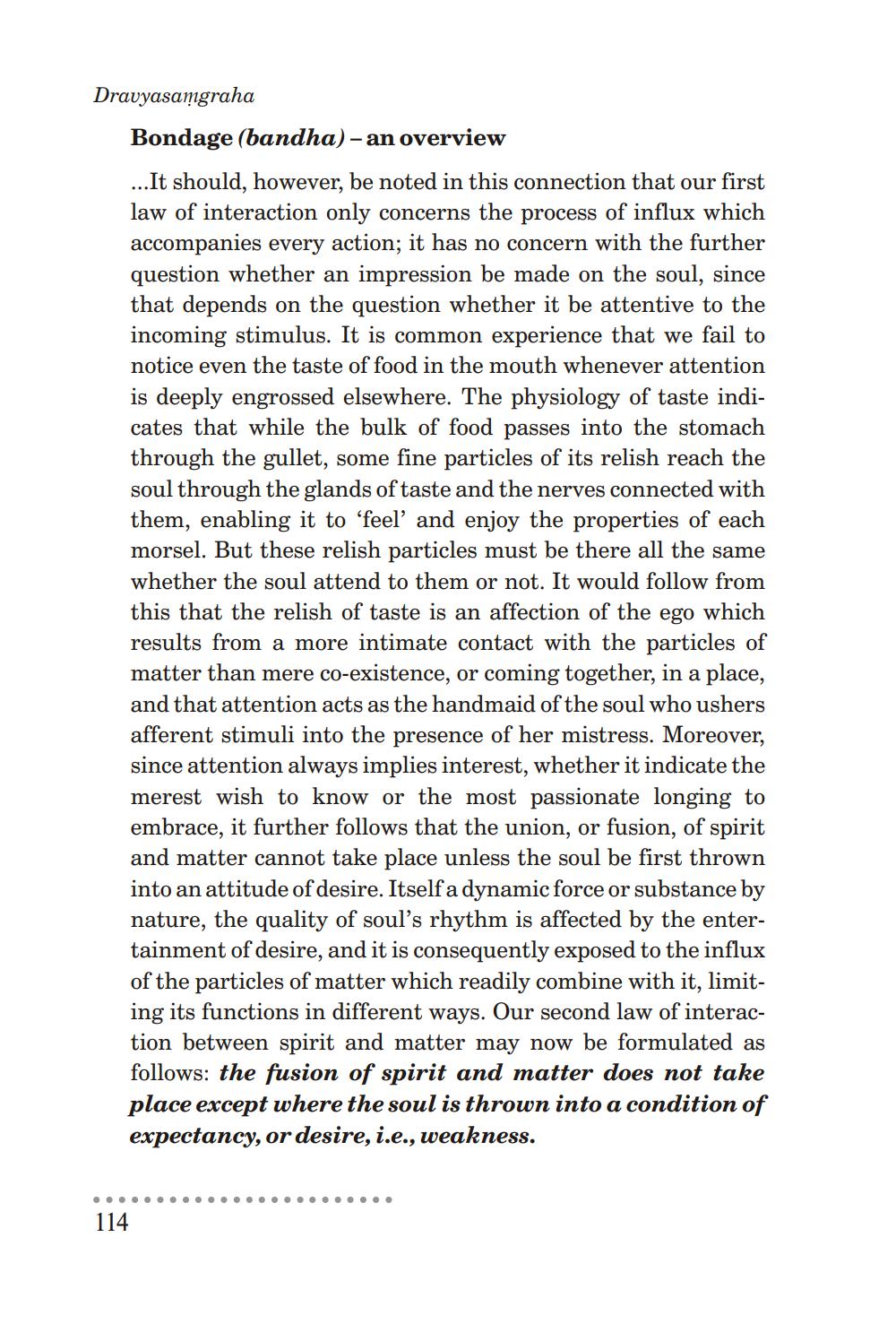________________
Dravyasamgraha
Bondage (bandha)- an overview
... It should, however, be noted in this connection that our first law of interaction only concerns the process of influx which accompanies every action; it has no concern with the further question whether an impression be made on the soul, since that depends on the question whether it be attentive to the incoming stimulus. It is common experience that we fail to notice even the taste of food in the mouth whenever attention is deeply engrossed elsewhere. The physiology of taste indicates that while the bulk of food passes into the stomach through the gullet, some fine particles of its relish reach the soul through the glands of taste and the nerves connected with them, enabling it to 'feel' and enjoy the properties of each morsel. But these relish particles must be there all the same whether the soul attend to them or not. It would follow from this that the relish of taste is an affection of the ego which results from a more intimate contact with the particles of matter than mere co-existence, or coming together, in a place, and that attention acts as the handmaid of the soul who ushers afferent stimuli into the presence of her mistress. Moreover, since attention always implies interest, whether it indicate the merest wish to know or the most passionate longing to embrace, it further follows that the union, or fusion, of spirit and matter cannot take place unless the soul be first thrown into an attitude of desire. Itself a dynamic force or substance by nature, the quality of soul's rhythm is affected by the entertainment of desire, and it is consequently exposed to the influx of the particles of matter which readily combine with it, limiting its functions in different ways. Our second law of interaction between spirit and matter may now be formulated as follows: the fusion of spirit and matter does not take place except where the soul is thrown into a condition of expectancy, or desire, i.e., weakness.
114




